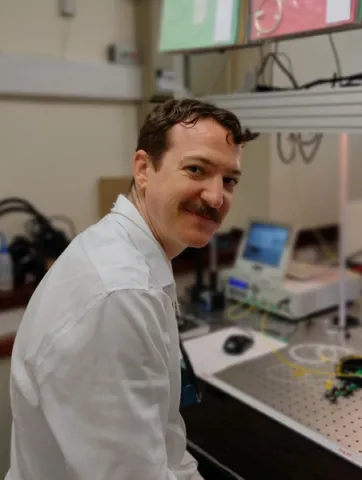About the project
Dive into the mysterious world of polarization in antiresonant hollow core fibres, where conventional wisdom is turned on its head, and unexpected phenomena emerge every day. Through your insights and innovation, you will shape the future of this cutting-edge technology from data centres, to high-power lasers, to space systems.
Across the world, the race is on, to develop the optical fibres which will enable the sensors of the future and form tomorrow’s communications backbone. The antiresonant hollow core fibres (AR-HCFs) invented and pioneered in Southampton are now deployed at the forefront of these fields, and this project offers the opportunity to create the next innovation which will push these frontiers. AR-HCFs guide light in a fundamentally unique way, opening a vast and mostly unexplored design space, and offering novel properties which are revolutionizing photonics. Despite its integral importance to guidance, these novel fibres’ polarization behaviour is one of the least understood aspects of their performance.
Through this PhD you will uncover the physics behind polarization effects in AR-HCFs and develop strategies to control and optimize them.
Your work will be a balance of theory and experiment, as you:
- develop theoretical frameworks to uncover scaling laws and create predictive models of polarization behaviour
- model and explore the design space of AR-HCFs, to understand how geometric attributes influence polarization performance
- pioneer new polarimetric techniques, investigate deployed fibre behaviour, and build experiments that bridge observables to theory.
You will join the world-leading Hollow Core Fibre group, working in cutting-edge labs and collaborating closely with industry partners in a variety of fields. The outcomes of your research will contribute to the development of real-world systems deployed at scale, from aerospace to hyperscale datacoms to quantum technologies.
You will be given full training by your supervisory team and other researchers on the use of an array of cutting-edge analytical and experimental tools. From this foundation you will begin to grow your own new tools and techniques.
The School of Optoelectronics (ORC) is committed to promoting equality, diversity inclusivity as demonstrated by our Athena SWAN award. We welcome all applicants regardless of their gender, ethnicity, disability, sexual orientation or age, and will give full consideration to applicants seeking flexible working patterns and those who have taken a career break. The University has a generous maternity policy, onsite childcare facilities, and offers a range of benefits to help ensure employees’ well-being and work-life balance. The University of Southampton is committed to sustainability and has been awarded the Platinum EcoAward.

